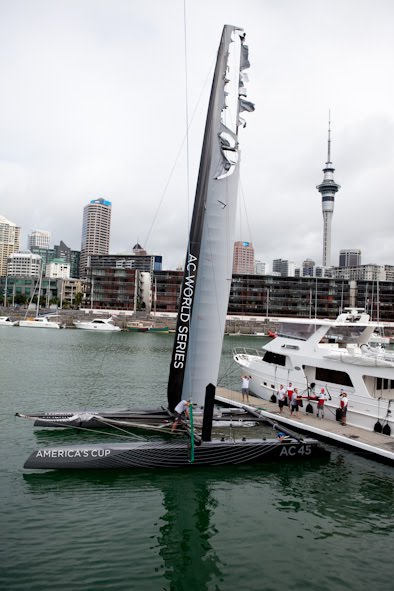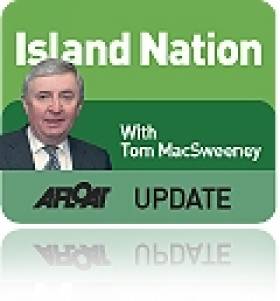Displaying items by tag: AC72
Marine Department Promised, First America's Cup Capsize, Whales and Sailing Oil Tankers
I am reflecting this week on a varied list of maritime issues which have arisen in my writings on marine topics.
Following recent pieces I wrote about the attitude of political parties in the General Election towards the marine sector, I had a telephone call from a senior Fine Gael politician and, lo and behold, the party included the marine sector in its manifesto, pledging to restore the Department of the Marine, abolished by Fianna Fail. I await post-election developments with interest.
It has been a good week for those interested in protection of whales and dolphins. Hundreds of dolphins were spotted off the Old Head of Kinsale, apparently following shoals of herring and sprat on which they were feeding.
In the Antarctic the Japanese whaling fleet was forced to give in to pressure to stop culling. The Japanese have killed hundreds of whales every year, claiming this was for "scientific purposes," even though it has been identified worldwide as for human consumption. The fleet was ordered home by its Government after increasing international pressure.
The Irish Whale and Dolphin Group published its annual report this week. It was formed in December 1990, dedicated to the "conservation and better understanding" of cetaceans - whales, dolphins and porpoise - in Irish waters through "study, education and interpretation." IWDG turnover in 2010 was around €300,000. It has dealt with up to 10,000 queries a month for information on its website. A total of 92 strandings of 128 individual cetaceans was reported to the IWDG in 2010. This compares to 137 strandings of 169 animals for 2009.
This week oil prices rose because of the unrest in Libya and David Surplus, Chairman of B9 Energy Britain's largest windfarm operator, warned that sooner or later oil will run out. BP is examining the possibility of building a fleet of carbon-neutral, wind-powered sail ships planned, to carry world trade.
On the international sailing scene the new AC 45, forerunner of the next generation of America's Cup boats was launched in New Zealand and had its first capsize. The wing-sailed catamaran is designed for speed and close racing, capable of making up to 30 knots, while intended to be handled in tight, tactical courses. An exciting boat to sail, it will also be very testing of ability. The first capsize of the new boat occurred on Auckland's Hauraki Gulf, hit by what was described as "a freak gust of wind," while the crew were doing maintenance on board before a sailing test.

Back in dock after the capsize
It capsized fully, ending upside down. Three support vessels were needed to pick up the crew and right the boat which was sailed back to its base in Auckland. There was damage to the wing sail, but no injuries to the crew. However, helmets may be an additional precaution needed for sailing these boats, which are to be used in the AC World Series! This will be a circuit of eight regattas for which venue bids are being made at present, with fleet and match racing, to raise the profile of high-performance sailing on worldwide television. Racing is to start in July, with regattas running until May of next year, leading into preparations for the next full AC series in the bigger AC72 catamarans in 2013 in San Francisco.
As the past week showed, there is always something interesting in the sea.
This article is reprinted by permission of the EVENING ECHO newspaper, Cork, where Tom MacSweeney writes maritime columns twice weekly. Evening Echo website: www.eecho.ie





























































